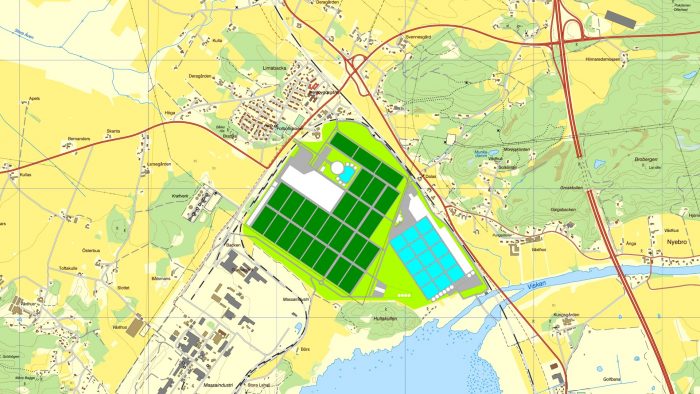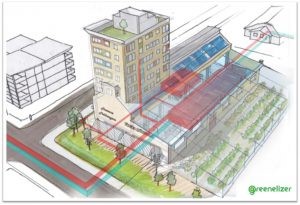SSEC is a network that enables sustainable food production and better living environments, through the use of residual heat and other unutilised resources
SSEC consists of a steering group and a program management, which represents the parties that have joined the cooperation. Fifteen parties have joined the network, large and small municipalities, large and small companies: as municipalities from all parts of Sweden, consultancy companies, manufacturing companies and companies that provide different types of services.
The program is coordinated by the Faculty of Landscape Planning, Horticulture and Agricultural Sciences, at the Swedish University of Agricultural Sciences (SLU), which designates a programme manager responsible for running the business.
A steering committee is appointed by the network members consisting of 5 people:
- Håkan Schroeder, network chairman and one of four deans at the Swedish University of Agriculture.
- Maria Varnauskas, Manager Try Swedish Export Program, Business Sweden
- Anneli Kuusisto, Developer / Strategist Municipality of Härnösand
- Sonny Strömberg, Business Area Manager Real Estate / Growth Team Leader Real Estate, E.ON Energilösningar AB (Energy Solutions Ltd)
- Håkan Sandin, Program leader, SSEC, Swedish Surplus Energy Collaboration at the Swedish University of Agriculture
Sub-program
SSEC has a number of sub-programmes connected to the network. The sub-programmes consist of one or more projects, each led by a project manager and / or project management depending on size and needs. Each sub-programme is composed of one or more projects, that will be presented the coming months in eBooks, special reports and 2 pages appearances in the Open Access Government web magazine.
Urban Food
SSEC enables a new Swedish, intensive, circular and mutualistic primary production of foods, with prioritisation of fish and vegetables in urban and industrial environments under the concept of FoodParks.
The figure below shows an industrial area where fish and vegetables are to be produced in a completely circular infrastructure. The area is located next to a large industry to utilise energy, heat and electricity, and other local resources.

SSEC has, after only 7 years, created a wave of investments in a whole new food infrastructure of research, innovations, training, new businesses and public businesses all over Sweden, that in a couple of years is probably reaching a volume of a few billion SEK.
Urban Food contributes to:
- Increased employment as an effect of the emergence of new products, services and businesses, without increasing the use of arable land;
- Increased production of healthy food by creating new market-adapted local fish and vegetable production by utilising and / or streamlining district heating infrastructure, energy surpluses, organic waste, carbon dioxide and other untapped resources;
- Safe and sustainable food supply throughout Sweden, through the creation of short and controlled circular supply chains close to consumers in urban environments.
Urban Health

The figure to the left illustrates completely new solutions in urban environment for houses and residential areas combined with food production in the middle of central parts of a city. The solutions are referred to as resilient houses or residential areas, which are initially designed as circular and no waste areas.
SSEC awarded prices of SEK 2 million on 19 September 2018 in the biggest SSEC/Vinnova competition ever. Vinnova is a state innovation and development authority, which together with SSEC members invested SEK 1 million each in this competition. The contestants contributed creative solutions for healthy living environments and food production in the city. These solutions are now implemented in many different places in Sweden and new business are created and already in operation.
- By utilising district heating infrastructure in our cities, we can create innovative healthy environments for people.
- Make available areas and meeting places in the city all year round with the aid of residual heat.
- Create health-promoting social environments in the city center, e.g. in the form of circular cultivation, which are available the year round only using a given place resources.
There is a large variety of solutions that are now being developed by many players on the market, not least by SSEC.
SSEC is a member network owned and operated by the Swedish University of Agriculture together with its members.


